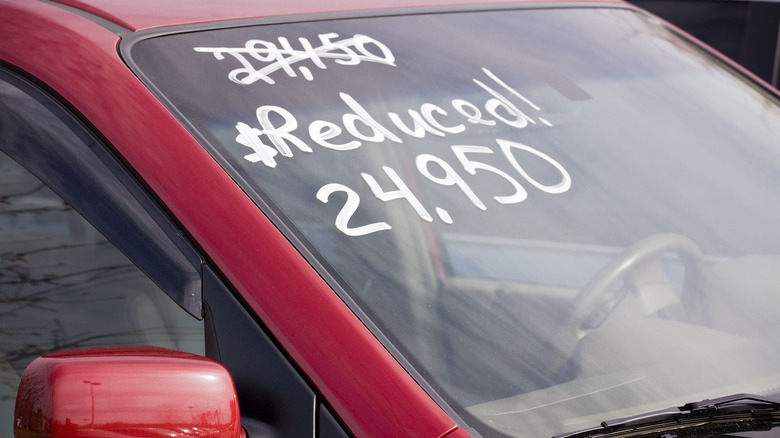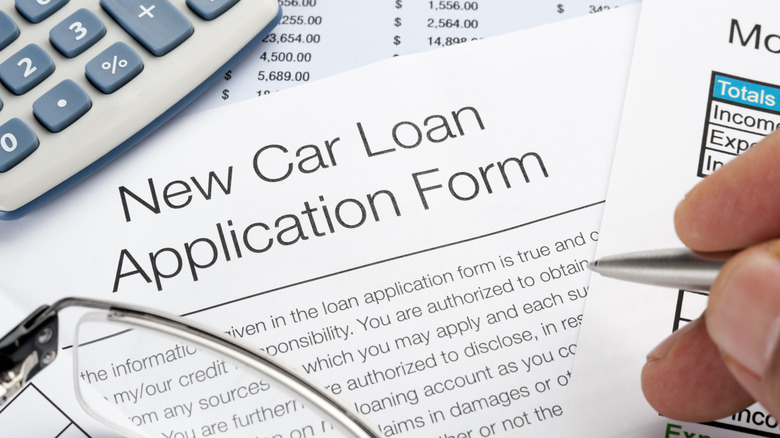3 Big Reasons You Should Still Wait To Buy A Car In 2024
If you've been in the market to buy a new car in the past couple of years, you've had to confront an unpleasant reality: Prices have been high, and deals have been few and far between, placing even the most budget-friendly cars and trucks out of the reach of many. What's more, higher interest rates have reduced many people's purchasing power.
If you could hold off on buying a car, you probably did. For many consumers, patience has been key as they've waited for vehicles to become affordable. The good news is that there might be a reason for some optimism, as it appears the market is beginning to shift.
Based on the latest data from Kelley Blue Book, in March, the average transaction price (ATP) of new vehicles dropped 5.4% from its December 2022 peak, reaching its lowest level in almost two years. However, prices are still 15.5% higher than in March 2021, suggesting that the market is still far from where it used to be. Here are some reasons to wait before buying a car this year.
Car prices could drop even more
High prices have been the biggest reason people have delayed new car purchases. Looking at the numbers, even though prices have gone down, they haven't dropped significantly. In March, the ATP of a new car was $47,218, only a 1% decline over the same time last year. Supply chain improvements are behind some of these figures, with new car inventories increasing 52% from last year. At the current pace, 2024 could be the best year for new car sales since 2019.
Still, that doesn't mean you should rush out to buy a car today. For the most part, the price you pay for a new car comes down to supply and demand. As supply chains stabilize and inventories continue to improve, dealers are likely to offer more incentives. If you can wait, it might be a good idea to do so as long as you can. However, if you must buy a car now, be sure to ask the right questions, try to find a dealer who will sell it to you at MSRP, and try to avoid dealer add-ons, like tinted windows or ceramic coating. Before making a decision to buy, it's important to keep in mind that while the market is more favorable than it was a year ago, prices may not move much lower in 2024.
Limited affordable car options
While car prices are lower than what they were a year ago, that doesn't make them affordable. With the ATP of a new vehicle hovering below $50,000, that's still too high for the average consumer on a tight budget. The car industry's focus on the luxury car market has resulted in a significant reduction in the availability of vehicles priced under $25,000. If you'd bought a new car in 2021, you would have had more than 20 models within that price range to choose from; in 2024, that number stands at just eight. Consumers do have the option of buying budget-friendly luxury cars second-hand, but even they might be too expensive.
You may be wondering why the market has changed so dramatically over the past few years. One reason is that manufacturers are making fewer entry-level cars, instead shifting their focus to more profitable, higher-end vehicles due in part to fuel economy regulations that may have reduced incentives to make less expensive cars. These changes, along with supply chain problems of the past few years, have driven prices higher and higher. Affordability has improved in 2024, reaching the best levels in 31 months, but it still hasn't returned to where it was in 2019. If the current prices will put too much strain on your budget, it's best to take a wait-and-see approach before committing yourself to a new car.
Watch those interest rates
Unless you're paying cash for a new car, interest rates are something you have to think about. While a car's ATP is the first thing that comes to mind when most of us consider buying a car, interest rates can have a significant impact on how much we pay for a vehicle over the long run. With interest rates currently at uncomfortably high levels, you might want to put the brakes on purchasing a new car until they come down. That's because even with car prices declining, higher financing costs likely offset any gains.
As a result, you'll see little or no benefit if you buy a car as long as interest rates remain where they are. Interest rates are one of the big hidden costs of buying a new car that you should always watch for.
The good news is that when the U.S. Federal Reserve decides to cut interest rates, auto loan interest costs will likely begin to fall too. Bottom line: If you're patient, you could potentially save a good amount of money in financing costs.



